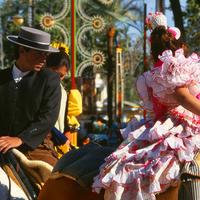¿dónde guardas las tazas?
|хранишь||чашки
|tu mets||les tasses
where|you keep||cups
|しまっている||カップ
|||filiżanki
Wo bewahren Sie die Tassen auf?
πού φυλάτε τα κύπελλα;
where do you keep the cups?
Où gardez-vous les gobelets ?
カップはどこに置いていますか?
컵은 어디에 보관하나요?
Waar bewaar je de kopjes?
Gdzie trzymasz kubki?
Где вы храните чашки?
Bardakları nerede saklıyorsun?
де ви зберігаєте чашки?
bạn để cốc ở đâu?
你把杯子放在哪里?
你把杯子放在哪裡?
- ¿Dónde guardas las tazas?
Where|do you keep|the|cups
|しまいます||
Gdzie|||
- Where do you keep the cups?
-カップはどこに保管しますか?
- ¿Que dónde guardo las tazas?
||храню||
||je mets||
What|where|I keep||cups
||保管する||
||放||
- Where do I keep the cups?
Las guardo en la cocina, encima de la encimera, así las tengo siempre a mano.
|||||наверху|||столешница||||||под рукой
|||||sur|||plan de travail||||||à portée de main
The|I keep|||kitchen|on top|||countertop|like this|the|I have|always|a|hand
|我把它们|||||||台面|||我有|||手边
||||||||カウンター|||持っている|||
||||||||blat kuchenny||||||
Ich bewahre sie in der Küche auf, auf der Arbeitsplatte, damit ich sie immer zur Hand habe.
I keep them in the kitchen, above the countertop, so I always have them on hand.
それらはキッチンのカウンターの上に置いておきます。そうすれば、いつでも手に取ることができます。
Я храню их на кухне, на рабочем столе, чтобы они всегда были под рукой.
Я тримаю їх на кухні, на стільниці, щоб вони завжди були під рукою.
© 2012 Avalado por el IDEL (Instituto de Desarrollo Experimental de Lecciones)
Approved||||||Development|||
2012 Endorsed by IDEL (Institute for Experimental Development of Lessons)
© 2012 IDEL(実験的な教訓の開発研究所)によって承認されました
